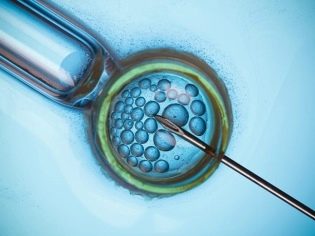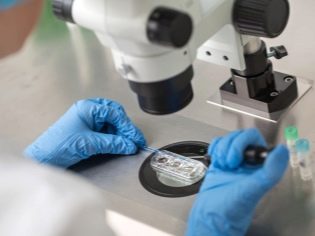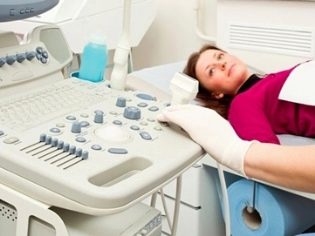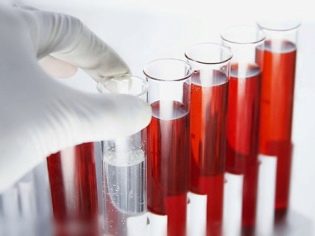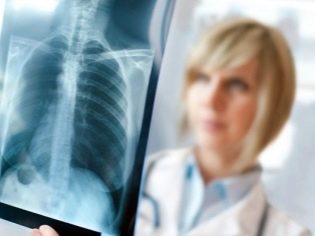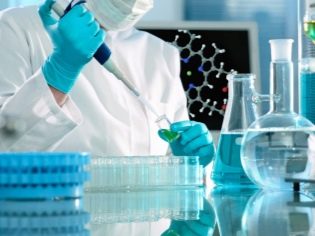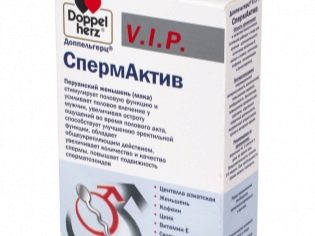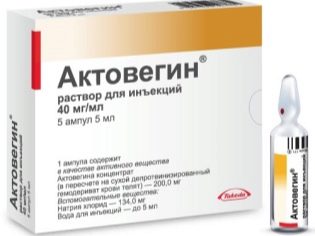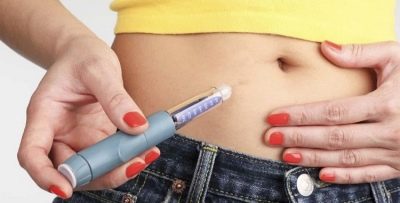Preparing women and men for IVF
The procedure of in vitro fertilization is quite expensive. And even if the couple goes to the procedure of state or regional quota, it does not guarantee that the costs will be small or they will not be at all. IVF requires a responsible attitude from the doctors who conduct it, and from the couple itself.
In many ways, the success of the procedure depends on how the spouses prepare for it. We will talk about preparation for the important event in this material.
How does this happen?
An attempt to conceive a child through the latest reproductive technologies, in particular IVF, is called a protocol. Before joining the protocol, the couple should be carefully examined, a lot of analyzes should be done, without which they simply will not be allowed before the procedure. After entry into the protocol, the fertility specialist makes an individual scheme.
Depending on the cause of infertility, a woman can be prescribed either IVF in the natural cycle, or IVF with prior hormonal stimulation. The stimulated protocol can be long and short. Such a drug preparation of the ovaries is important so that in the current cycle not only one egg cell will mature in women, but several oocytes, and the more they will be, the higher the chances of pregnancy at the end of the protocol.
When the follicles grow to significant sizes - 16-20 mm, the woman is given an injection of HCG. This hormone allows oocytes to ripen, and 36 hours after the injection, a puncture of the ovules is given. Oocytes and semen obtained by masturbating a partner are delivered to the laboratory where fertilization takes place. Embryologists evaluate the growth of zygotes and, after 2-5 days, embryo transfer to the maternal organism is indicated.
2-3 embryos are placed in the uterus through a thin catheter. This concludes the protocol and begins a period of anxious waiting for the result - only 14 days after the transfer, it makes sense to do a blood test for HCG. If the implantation of the embryo took place, the concentration of this hormone in the blood will inform about it. 3 weeks after embryo transfer, a woman can do the first ultrasound scan, which should confirm or deny the fact of pregnancy.
No one will be able to guarantee the spouses for any money that the IVF protocol will be successful. The probability of getting pregnant on the first attempt does not exceed 35%. In the second and third protocols, the chances of getting pregnant are slightly higher - 40-45% and even 50-60%. But then the probability decreases again.
The result can be influenced by a great many factors, including the quality of the germ cells, which took part in in vitro fertilization, as well as the age of spouses and their health. Proper preparation for IVF spouses will increase the chances of success.
Analyzes and surveys
If the decision is made, and the couple firmly intends to go on IVF, you should start with a thorough medical examination. In terms of time it usually takes up to two months. The list of studies and diagnostic measures established by the order of the Ministry of Health of the country, but in different clinics, it can be supplemented with other analyzes, if the doctor considers them appropriate.
A woman should undergo a complete gynecological examination - examination, colposcopy, ultrasound of the pelvic organs, hysteroscopy (with an endometrial biopsy if necessary), check the patency of the fallopian tubes using diagnostic laparoscopy or contrast x-ray examination. A woman takes a smear of their vagina on the microflora and infections, as well as scraping from the cervix to study cervical mucus.
The tests for women are a rather impressive list, which includes blood tests for HIV, syphilis, hepatitis B and C, sexually transmitted infections, TORCH infections, blood type and Rh tests. Blood tests for the main hormones that play an important role in reproductive function and in the process of carrying a child - prolactin, estrogens, estradiol, follicle-stimulating hormone FSH, LH, thyroid hormones and a number of other substances should be done.
For a man, the Ministry of Healthcare has a less long list of examinations: spermogram, blood tests for HIV, syphilis, genital infections, a smear from the urethra, and a chest x-ray, if it has not been done within a year.
If the spouse is over 35 years old or the age of the man is over 40 years old, the couple must visit the genetics With age, the quality of germ cells (oocytes and spermatozoa), alas, does not improve, which may cause chromosomal abnormalities in the fetus. In addition, spouses may have hereditary diseases that prevent them from becoming parents for so many years. The couple will need to do an analysis for genetic compatibility, as well as an analysis for karyotyping.
It would not be superfluous to get a consultation from an immunologist, because if one spouse has immune rejection of the germ cells of another, then it is likely that an IVF attempt will be ineffectual.
As you progress through the survey, you should understand that each analysis has its own validity period. Usually, each clinic has its own requirements for testing, and before this important preparatory stage begins, a full list of studies should be obtained from the reproductologist, indicating the periods during which tests will be valid for IVF.
Lifestyle
While spouses pass tests and visit doctors, it is worth thinking about how to improve the quality of germ cells. It is equally important for women and for men. To do this, it is recommended to maintain an exceptionally healthy lifestyle. The cycle of spermatogenesis (development and maturation of spermatozoa) lasts about 90 days. This means that about three months before the proposed IVF protocol, a man should limit physical activity. It is about strength training in the gym, hard physical work. Feasible physical exertion is welcome - this includes work in the open air, summer cottage, walks, light runs in the mornings or evenings.
Swimming, tennis, skiing is useful, but cycling should be avoided so as not to pinch and injure the testicles. Men generally should reconsider their attitude to the scrotum. It would be useful to abandon cramped underwear, swimming trunks, giving preference to family pants, as well as at least temporarily refuse to visit the bath, sauna, tanning bed, long lying in a hot bath.
To make the sperm protocol more healthy, no heat exposure to the testicles should be allowed. Overheating significantly reduces the number of live and motile germ cells.
Three months before IVF, a man should stop taking alcoholic beverages. Alcohol, nicotine and drugs not only reduce the motility of sperm, but also cause mutations in the germ cells, resulting in healthy embryos, doctors may not receive. You should also limit contact with chemicals, paints, solvents, nitrates and salts of heavy metals.It is important to prevent exposure to radiation.
A woman is strongly advised to give up the diet if she has followed it. Any monodiets and strict diets for weight loss adversely affect the hormonal background. Exercise should also be reviewed: lift weights, jump, exhaust yourself in the gym on the eve of IVF is contraindicated. Swimming will benefit as well as yoga and gymnastics.
A woman should carefully monitor her menstrual cycle, monitor and plot the basal temperature, to make it easier for the doctor to understand how regularly the patient has her own ovulation. 2-3 months before IVF, in the absence of contraindications, a woman can undergo a gynecological massage course at the antenatal clinic at the place of residence.
To improve the quality of eggs, it is important to stop smoking and taking alcoholic beverages. Sex life should be regular and full.
Both partners should get enough sleep. If the work of one of them (especially women) is associated with night shifts, you should ask the management to change the schedule for medical reasons. At least 8 hours of a night's sleep guarantee that the hormones of a man and a woman will significantly improve in a couple of months, since many hormones and enzymes are produced at night.
Nutrition
Proper nutrition is very important for reproductive health. Even if a couple are convinced vegetarians, their principles should be changed for a while, since animal proteins must be present in the diet of spouses. This is extremely important for the normal process of spermatogenesis and the maturation of full eggs.
In the diet must be meat and fish, preferably low-fat varieties, poultry, offal (liver). It is necessary to avoid an excess of so-called “fast carbohydrates” - cakes, cookies. Carbohydrates must be, but only from the category of "slow" - cereals, cereals.
Daily on the menu should include fresh vegetables, fruits, dairy products and milk. You should avoid fried and smoked food, fast food, lemonade and store juices, which contain a huge amount of sugar and dyes. Semi-finished products should also be excluded from the diet.
Be sure to include in the diet of men nuts, cottage cheese, sour cream and fresh herbs. Dairy products and fresh fruit will benefit the woman.
Medicines
Vitamins and special dietary supplements that improve the quality of sperm and oocytes will help prepare for IVF. A woman can take in consultation with the doctor "Ovariamin", she also needs multivitamin preparations and folic acid. Men need supplements based on zinc, selenium, iron, folic acid. Quite effectively improve the quality of male germ cells such drugs as "SpermAktiv", "SpermStrong", "Viardot."
The course of taking medications to improve the quality of germ cells is usually quite long, so it should be started at least 3-6 months before the intended IVF procedure. Sometimes a couple is recommended to take drugs that improve the condition of the blood vessels (for example, "Actovegin»).
The courses of treatment and the regimen for the administration of specific drugs should be recommended individually by the attending physician. Self-medication and self-prescription of drugs may have the opposite effect.
Psychological training
In preparing for IVF, spouses should be well aware that there may not be a successful outcome. IVF is only a chance, but not an absolute solution to the problem of family infertility. You should not put too high hopes and expectations on the procedure so that in case of an unsuccessful protocol you should not fall into severe depression and not lose faith in yourself.
Psychological readiness for any outcome of events should be given due importance.Stress, which is accompanied by anxious waiting and impatience, does not contribute to the successful implantation of embryos, but affects the production of sex hormones.
The couple should relate to what is happening philosophically, without fanaticism. It will be useful to familiarize yourself with the existing statistics of IVF in order to soberly assess your chances. A woman should enter into a protocol in a calm and positive mood, there should be no conflicts and quarrels in the family.
What to do in the protocol?
As soon as the couple entered into the IVF protocol, she gives written informed consent to the use of contraception during the entire treatment cycle. Hormonal contraceptives are prohibited, since the woman will undergo hormonal training for puncture of the follicles. It is allowed to use only condoms in the first half of the cycle. After embryo transfer, sexual contact is prohibited until the diagnosis of pregnancy, if the protocol is successful.
At the first stage, a woman will receive hormonal agents prescribed by a doctor, make injections in the stomach and intramuscularly, visit a fertility specialist and do an ultrasound to control the growth of follicles. All this time, she may feel worse, because hormonal stimulation is quite aggressive.
It is important to try to avoid taking drugs that are not agreed with the doctor. Headache remedies, antibiotics, antiemetic or antidiarrheal drugs may adversely affect the condition of the eggs.
Before collecting eggs, a woman is recommended to have a last meal 12 hours before the manipulation, you should not drink liquid on the morning of the puncture. It is advisable to do an enema. Going to the clinic, you should not put on makeup, wear rings and other jewelry, as well as contact lenses.
A man who has to take sperm on the day of his wife’s ovarian puncture should follow sexual abstinence 3-5 days before the procedure. A light breakfast with a minimal amount of liquid is allowed for the woman before the transfer.
Preparation for the second protocol
If the first protocol did not succeed, the pair usually needs about 3 months to recover from the first attempt. After that, you can plan a second protocol.
Waiting time is not worth wasting. A woman needs to pass the necessary tests to determine the causes of failure. It will be good if she will be given professional psychological help, which will help her morally recover faster and tune in to a new attempt.
In the recovery period between attempts, the couple is allowed to lead a normal life, excluding alcohol and nicotine. Useful physiotherapy, changing the situation, hirudotherapy, acupuncture, massage.
Spouses will benefit from traveling together, updating the interior, experiments in bed, because bans on unprotected sex after an unsuccessful protocol are removed.
By the way, in 25% of cases, couples who went through the unsuccessful first protocol manage to get pregnant on their own in a completely natural way during the recovery and preparation period for the second attempt. The reason is simple - hormonal stimulation, which the female reproductive system has undergone, “triggers” the mechanisms of work in the new cycle with great potential, so pregnancy, which has been so long dreamed of, may well come to the surprise of relatives, acquaintances and spouses themselves.
During the recovery period, men and women should take drugs to improve the quality of germ cells and follow all the recommendations that were relevant in preparing for the first attempt. If the second protocol is carried out using pre-frozen sperm, eggs or embryos that were left from the previous protocol, careful preparation is important only for a woman.
Useful tips
On the Internet you can find many tips that give people who have passed through IVF.A couple should not take everything at face value, since what came up with one may not suit others. Do not use drugs on the advice of someone from the Internet.
Despite the abundance of positive reviews about unconventional treatments for infertility, which are often recommended at the preparatory stage before artificial insemination, it is not necessary to replace the treatment prescribed by the doctor with the reception of folk remedies. They usually cannot completely replace the medical scheme and have the right to exist only as ancillary aid and only when approved by the attending physician.
For information on how to properly prepare for the IVF program, see the following video with recommendations from the gynecologist-reproductologist of the South-Western Network of the Nova Klinik Reproduction and Genetics Centers network.


